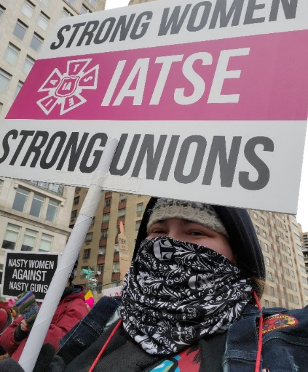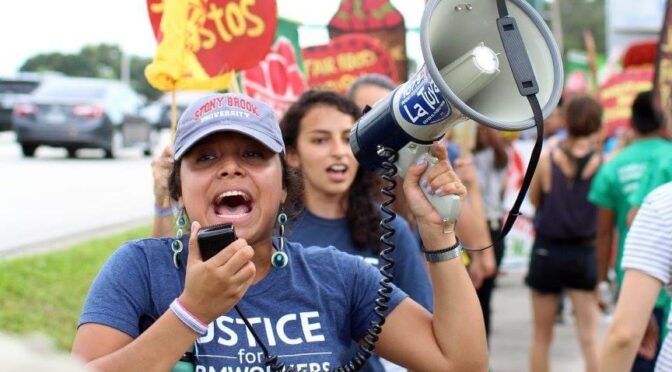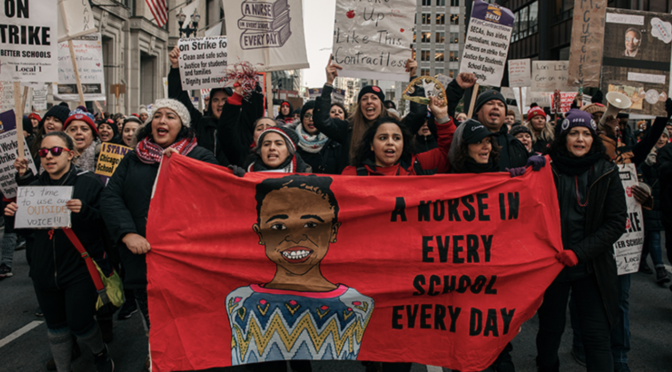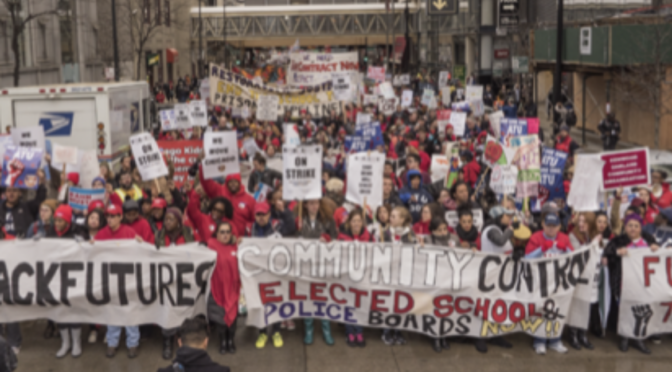Raising awareness is something Gabriela cared about from an early age. Her mother worked at a poultry factory for 12 years, and that’s how Gabriela became involved with the Rural & Migrant Ministry. “I joined RMM when I was 14,” she said. “I saw my mother’s situation and I wanted to know more about her rights. Every year we would go to Albany and my mother would share her story. In RMM I worked alongside women who really wanted to make a change in what is like a forgotten land. People in the City don’t understand that rural upstate New York isn’t just about growing apples. It’s about isolated factory workers and farmworkers who have been forgotten.”
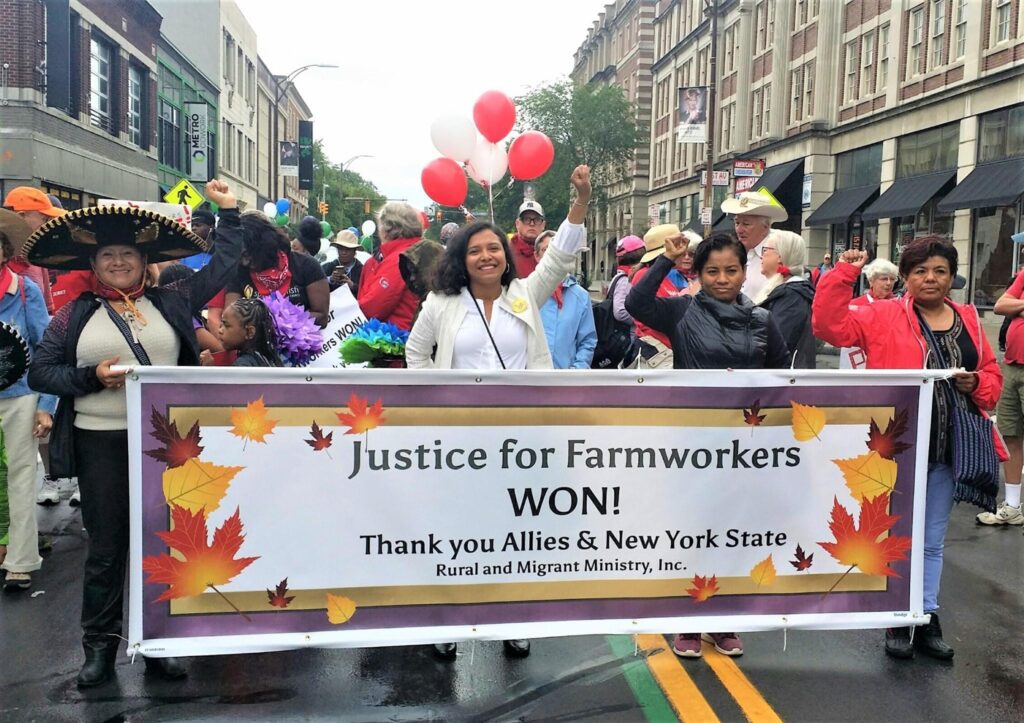
After earning her degree in sociology at SUNY Stony Brook, Gabriela returned to RMM, serving as the organization’s Western New York Coordinator. “My job revolved around coalition-building. I worked alongside farmworkers who year after year shared their stories of oppression with legislators. I also organized community members to go to Albany and support The Farmworker Fair Labor Practices Act. The Farm Workers Bill had been around for 20 years. It was about getting farmworkers to be protected by New York labor laws. That they deserved a day of rest, overtime, and the right to collectively bargain. And eventually, we won.” Governor Andrew Cuomo signed the bill into law on July 17, 2019.
Gabriela learned about SLU four years ago when she met Laurie Kellogg and Diana Robinson at a food chain workers event. “I wanted to go to graduate school, and I thought SLU would be a good fit for me, with its emphasis on the labor movement. But I had just moved to the Finger Lakes and I wasn’t ready to make another change. I had always dreamed of living in New York City, and last summer I decided to make the move—in the middle of a pandemic. The first month was really hard—I’m an extrovert, and the lack of community was just awful. But I accomplished my goal: I’m enrolled at SLU, in my first semester in the Labor Studies MA program.” She sighed. “Online.”
Gabriela says she’s lucky—she had a great support system that helped her get her education. “Others aren’t so fortunate. So in 2015 I founded Adelante Student Voices, an organization that provides a safe space for New York’s undocumented students to explore their legal status and find routes to college. They learn about New York State’s DREAM Act, the legislation that allows eligible undocumented students to apply for financial aid for college. So far, 55 students have gone through our program and 26 have been able to go to college.”
Asked what she wants to learn at SLU, Gabriela replied, “I’m curious to explore how non-profit organizations have been able to achieve changes in the law without relying on unions. When you think about the labor movement you automatically think unions, but there are many other organizations that should be included. There needs to be a way to bridge the gap. I’m hoping my professors and my classmates can help me figure that out.”
She added, “I’m enjoying learning about urban issues and how labor issues play out in the city. But I also want to bring a different perspective, from my own experience. I want to find out how we can bring the most marginalized communities to the forefront of the labor movement. I want people to think about the issues that impact rural areas and those vulnerable and forgotten workers, many of them undocumented. I’m fortunate to have my green card now and I’ve applied for citizenship. And I will utilize this privilege to bring forward those who are marginalized to decision-making tables.”
She paused. “I’m not going to forget them.”
LEARN MORE ABOUT SLU’S M.A. IN LABOR STUDIES

